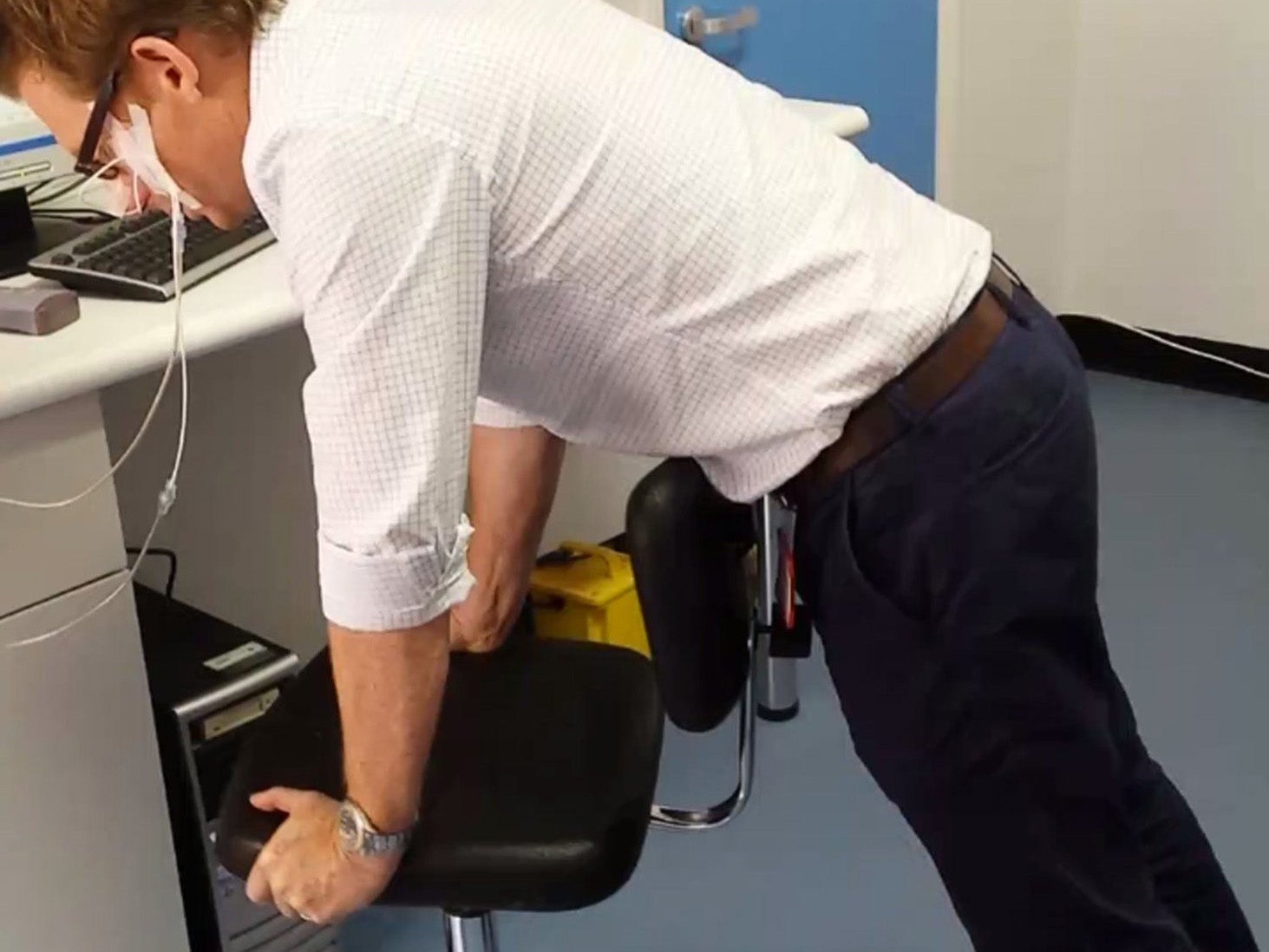Choking victims should perform Heimlich manoeuvre on themselves, say scientists
More than 200 deaths were caused by choking on food in the UK in 2014

Your support helps us to tell the story
From reproductive rights to climate change to Big Tech, The Independent is on the ground when the story is developing. Whether it's investigating the financials of Elon Musk's pro-Trump PAC or producing our latest documentary, 'The A Word', which shines a light on the American women fighting for reproductive rights, we know how important it is to parse out the facts from the messaging.
At such a critical moment in US history, we need reporters on the ground. Your donation allows us to keep sending journalists to speak to both sides of the story.
The Independent is trusted by Americans across the entire political spectrum. And unlike many other quality news outlets, we choose not to lock Americans out of our reporting and analysis with paywalls. We believe quality journalism should be available to everyone, paid for by those who can afford it.
Your support makes all the difference.It is just as effective to perform the Heimlich manoeuvre on yourself as it is for someone else to do it for you, researchers have found.
The first aid technique, used to clear the airways of choking victims, involves a series of short, sharp upward thrusts on the abdomen.
Usually, the thrusts are performed by a helper – but self-administered thrusts using the arms or a chair “produce similar pressures to those performed by another person,” according to a new study published in the journal Thorax.
In 2014 in the UK, 229 deaths were caused by inhaling food, leading to obstruction of the respiratory tract. Office for National Statistics data show an a further 29 were caused by choking on other objects.
The scientists from the Royal Brompton Hospital and Imperial College in London said people should be taught how to give themselves the Heimlich manoeuvre in basic first aid training.
They described how the procedure can be carried out, saying: “The participant positions their own hands in the standard position for the abdominal manoeuvre and performs thrusts increasing to the maximal force they can tolerate.”
The “standard position” is where the fists are clasped together and placed over the fleshy part of the abdomen, above the navel, said the study.

‘Chair thrusts’ produce higher pressures than if the manoeuvre when performed by someone on themselves or someone else, said the researchers, who measured the body’s response to the different moves.
These can be carried out by positioning the body “above a high backed chair, with the chair back positioned below the upper half of the abdomen, below the ribcage.”
“Using gravity, bodyweight and arms for additional force, the participant allows the back of the chair to thrust up into their abdomen”.
The researchers said everyone who experiences severe choking should immediately either do the Heimlich manoeuvre on themselves or use a chair to perform the thrusts.
Notices should be placed in restaurants and cafeterias and the procedures should be taught in schools, on first aid courses and to catering staff, they recommended.
The Heimlich manoeuvre was developed by American surgeon Henry Heimlich, who first described the technique in 1974 and later estimated it had saved the lives of 50,000 people.
Join our commenting forum
Join thought-provoking conversations, follow other Independent readers and see their replies
Comments